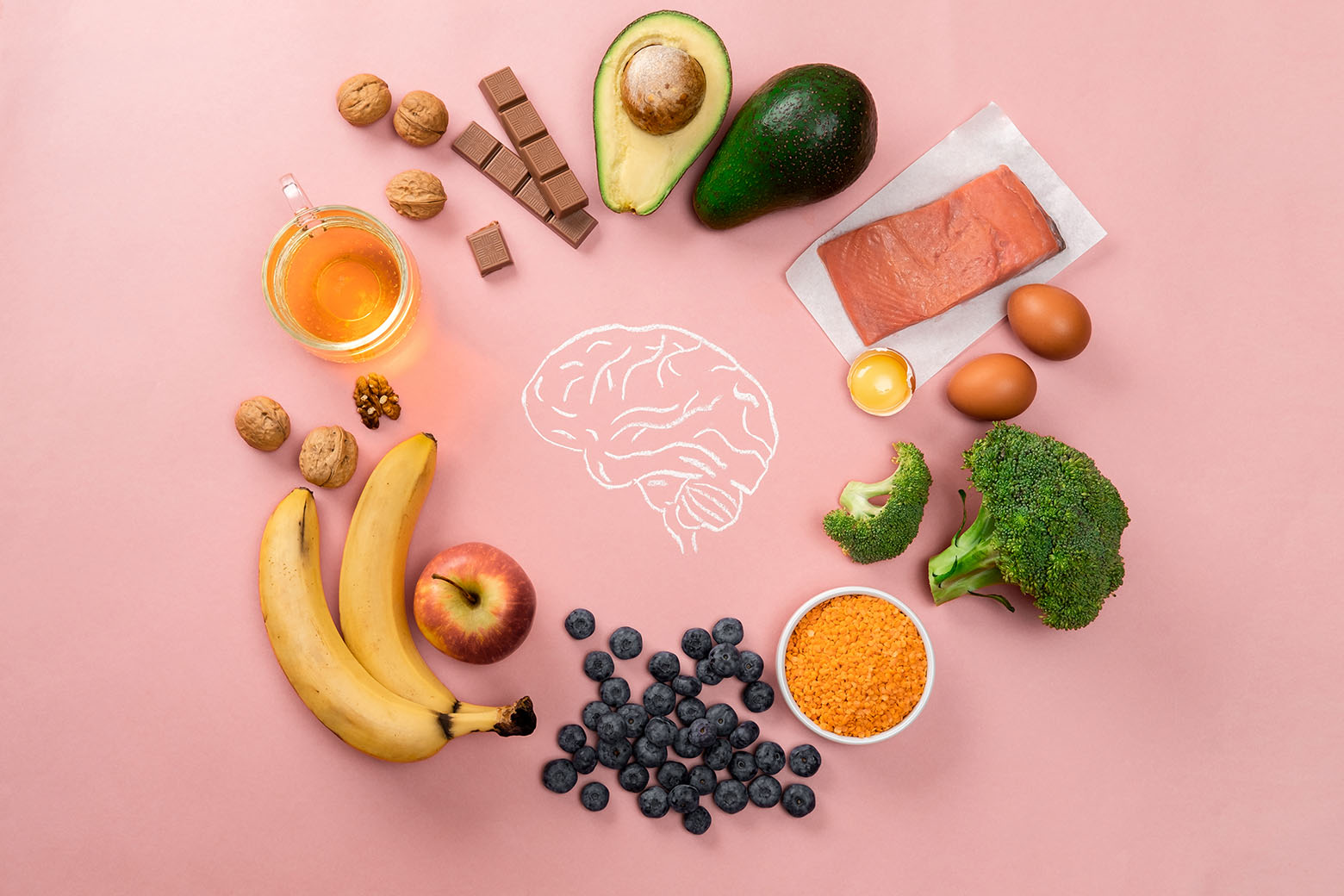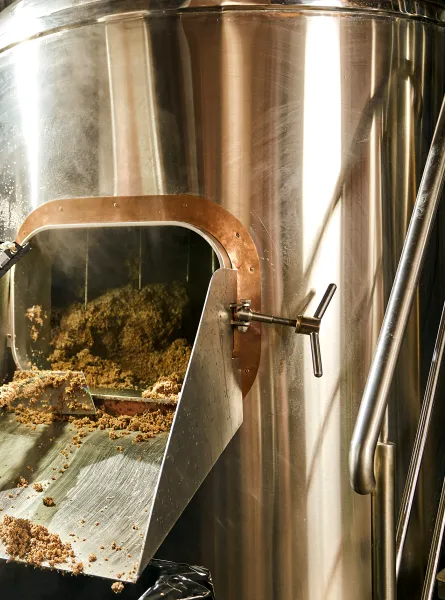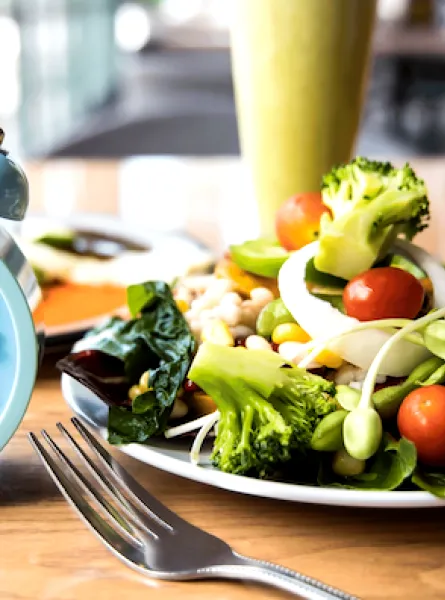
Are you looking to sharpen your mind and boost your memory? Despite its small size, the brain consumes up to 20% of your daily energy. (1) By choosing the right foods and supplements, you can give your mental performance a significant boost. Let's explore how you can enhance your cognitive functions with the help of nature and science!
1. Choosing the Right Carbohydrates
The brain, a major consumer of energy, requires about 120 grams of glucose (sugar) per day to maintain its functions at their peak. Therefore, it is wise to favor whole grains such as barley, quinoa, and brown rice, rather than simple carbohydrates like refined flours and grains.
Whole grains, rich in fibre and protein, release energy gradually. This helps stabilize blood sugar levels, a crucial element for maintaining good concentration throughout the day. (2,3) For whole grain side dishes, try our Middle Eastern spiced barley or our low-FODMAP quinoa tabbouleh.
2. The Power of Omega-3 Fatty Acids
Omega-3s, found abundantly in fish like salmon and in plant sources like flax seeds, are direct fuel for brain health. These fats are essential for maintaining the structural integrity of brain cells and facilitating communication. (2,4) Not a big fish eater? Try these recipes to make it more appealing: fish tacos and salmon patties.
Is taking a supplement necessary?
Omega-3 supplements could significantly boost levels of BDNF, a crucial protein for brain function. Studies show that this effect is more pronounced when supplements are taken for more than 10 weeks, with daily doses not exceeding 1500 mg, especially in individuals under 50. (5) Before starting any supplement, be sure to consult a healthcare professional to see if it’s a good option for you.
3. Vitamins and Antioxidants for Brain Protection
The brain's high metabolic activity makes it vulnerable to oxidative stress. Antioxidants from berries, legumes, and spices like turmeric could contribute to protect brain cells from damage, enhancing memory retention and protecting against cognitive decline. (2,6)
4. Nootropics for Enhanced Brain Function
Nootropics, also known as "smart drugs," can be natural, like certain plants and nutrients, or lab-made. They are used in hopes of improving mental abilities such as memory and concentration. Evidence suggests that ginkgo biloba and ginseng could significantly improve cognitive functions, particularly in older adults or those nearing menopause. Ginkgo biloba is known to enhance attention and memory when taken before cognitive challenges (7), while ginseng has been shown to improve reaction time and accuracy (8).
5. Hydration and Its Cognitive Impacts
Hydration is crucial for cognitive health. Even mild dehydration can impair mental clarity and concentration by reducing blood volume and disrupting neural signals. (9) If you're finding it difficult to stay adequately hydrated, check out our dietitians' tips for increasing your daily water intake!
6. Coffee for Optimal Alertness Levels
While coffee can temporarily boost alertness and energy for about 30 minutes, it may also disrupt sleep up to 10 hours after consumption. However, when consumed in moderation, coffee offers benefits such as improved focus and cognitive performance. It can also stimulate digestion and temporarily raise blood pressure, benefiting those who need it. Moreover, coffee is rich in antioxidants, which play a role in protecting against certain diseases. However, excessive consumption can lead to dependence and impair the absorption of essential nutrients like iron, calcium, and zinc. Only 10% of consumers avoid these negative effects due to a rapid caffeine metabolism. (10,11)
Integrating Diet and Nootropics into Your Routine
A nutrient-rich diet combined with strategic use of nootropics, after consulting with a health professional, could significantly enhance your cognitive abilities.
Book an appointment with a registered dietitian nutritionist from our team today and improve your brain health with a natural and scientifically supported approach!
References
- Raichle, M. E., & Mintun, M. A. (2006). Brain work and brain imaging. Annual Review of Neuroscience, 29, 449-476.
- Martínez García, R. M., Jiménez Ortega, A. I., López Sobaler, A. M., & Ortega, R. M. (2018). Estrategias nutricionales que mejoran la función cognitiva [Nutrition strategies that improve cognitive function]. Nutrición Hospitalaria, 35(Spec No6), 16-19. https://doi.org/10.20960/nh.2281
- Spring, B., Chiodo, J., & Bowen, D. J. (1987). Carbohydrates, tryptophan, and behavior: A methodological review. Psychological Bulletin, 102(2), 234–256. https://doi.org/10.1037/0033-2909.102.2.234
- Dighriri, I. M., Alsubaie, A. M., Hakami, F. M., Hamithi, D. M., Alshekh, M. M., Khobrani, F. A., Dalak, F. E., Hakami, A. A., Alsueaadi, E. H., Alsaawi, L. S., Alshammari, S. F., Alqahtani, A. S., Alawi, I. A., Aljuaid, A. A., & Tawhari, M. Q. (2022). Effects of Omega-3 Polyunsaturated Fatty Acids on Brain Functions: A Systematic Review. Cureus, 14(10), Article e30091. https://doi.org/10.7759/cureus.30091
- Sohouli, M. H., Rohani, P., Nasehi, M. M., & Hekmatdoost, A. (2023). Changes in serum brain-derived neurotrophic factor following supplementation of omega 3 fatty acids: A systematic review and meta-regression analysis. Clinical Nutrition ESPEN, 56, 207-214. https://doi.org/10.1016/j.clnesp.2023.05.019
- Wright, K. C. (2018). Mediterranean diet improves cognition, memory, and brain volume. Today's Dietitian, 20(6), 40.
- Pfiffner, M. (2023, July 22). Ginkgo Biloba. Examine. https://examine.com/supplements/ginkgo-biloba/#ref-299
- Examine.com. (n.d.). Panax ginseng. Retrieved [2024-04-27], from https://examine.com/supplements/panax-ginseng/
- Maughan, R. J., & Meyer, N. L. (2013). Hydration during Intense Exercise Training. In Nestlé Nutrition Institute Workshop series (pp. 25–37). https://doi.org/10.1159/000350225
- Rogers, P. J., Hohoff, C., Heatherley, S. V., Mullings, E. L., Maxfield, P. J., Evershed, R. P., Deckert, J., & Nutt, D. J. (2010). Association of the anxiogenic and alerting effects of caffeine with ADORA2A and ADORA1 polymorphisms and habitual level of caffeine consumption. Neuropsychopharmacology, 35(9), 1973-1983. https://doi.org/10.1038/npp.2010.71
- Solomon, T. (2023, December 18). Caffeine. Examine. https://examine.com/supplements/caffeine/





